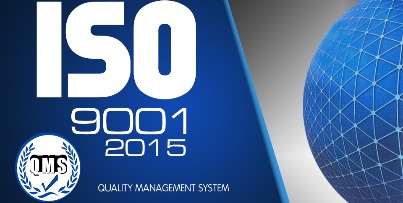
How ISO Certification helpful for Construction Industry?
ISO Certifications, which are internationally recognised, are beneficial to practically every industry on the planet. The construction industry is one of the most important sectors that contributes significantly to the country's economic development. Construction industries are thought to be the foundations of any country. As a result, there has been an immediate growth in demand for the development of buildings and infrastructure while retaining quality and efficiency in the operations in recent times. This is where ISO Certifications for the construction industry come in, as they can assist your company in providing the highest quality products or services to your consumers or clients. For these businesses, ISO certification is also very effective in meeting the needs and demands of customers and other shareholders.
ISO Certifications offer the greatest potential for delivering high-quality products or services to the construction industry, resulting in massive earnings for the organisation. ISO Certifications help to improve your company's reputation by demonstrating that you are committed to meeting internationally recognised quality standards. As a result, ISO certifications are extremely beneficial to the building business.
Why do the Construction Industry need ISO Certification?
The construction sector urgently needs to obtain internationally recognised ISO Certifications in order to emerge as efficient and effective management systems. Construction industries are ones that are exposed to several dangers or risks. As a result, there is a lot of anxiety about the construction services' quality and safety. Only a globally recognised trademark can guarantee these sectors' safety management. An ISO trademark assures clients that the construction industry's services are compliant with internationally recognised ISO standards. The Construction business can use ISO Certifications to demonstrate to clients and other shareholders that it is effective and efficient in meeting the requisite standard.
Every level of the construction industry's services demonstrates the critical necessity for ISO Certifications. In this context, the following points are highlighted:
- More systematised service delivery, enhancing your reputation and assisting you in attracting new customers and retaining existing ones.
- Take the appropriate steps to reduce the effect of occurrences.
- Recognizing and controlling your company's existing and future risks.
- Almost all sorts of construction industries, regardless of size, type, or method, can obtain ISO certification.
Which standards or ISO certificates are required for the Construction Industry?
The International Organization for Standardization (ISO) develops standards that aid in the implementation of systematised management systems for the delivery of quality assured products and services, as well as enabling compliance with the relevant standard.
ISO 9001, ISO 14001, ISO 45001, and ISO 50001 are the most popular ISO standards for the construction industry. Let's take a quick look at each of these requirements:
Let's have a look at these ISO standards in more detail:
ISO 9001 Standard
ISO 9001 is a global standard that establishes a framework for establishing Quality Management Systems (QMS) in businesses. As a result, ISO 9001 assures that the quality of your products or services fulfils client expectations, which is extremely advantageous to the prosperity of your country.
ISO 14001 Standard
By providing the basis for the construction of Environmental Management Systems, the internationally renowned ISO 14001 standard assists you in enhancing your contact with the environment (EMS). It also aids you in resource management and waste reduction in order to make your activities more environmentally friendly.

ISO 45001 Standard
The global standard ISO 45001 provides a framework for building an occupational health and safety management system (OHSMS) in your company. This protects both your employees and your visitors from work-related injuries.

ISO 50001 Standard
The international standard for energy management systems, ISO 50001 Certification, is a requirement. This ISO standard for the railway industry can help you enhance your overall energy management while also lowering your costs and operational expenses.

ISO 27001 Standard
The automobile industry can benefit from ISO 27001 accreditation for Information Safety Management Systems (ISMS), which will demonstrate the company's competence to handle valuable data and information. This ISO certification for the automobile industry also aids in the prevention and management of cyber-attacks and data breaches.
Benefits of ISO certification for Construction Industry Industry
ISO certifications play an important role in a company's success. ISO Certification is the ultimate criterion for any firm to ensure that their products and services are of the highest quality. As a result, obtaining ISO Certification for the construction business can result in significant financial gains.
The following are some of the advantages of ISO Certification for your construction company:
- ISO certification might help a business set new goals or objectives to work toward.
- Your organisation may compete on an international level with other strong competitors thanks to ISO certification.
- You may meet clients' expectations by supplying them with safe and high-quality products or services with the help of ISO certification.
- You can be confident in the efficiency of your consignment delivery with ISO certification.
- With ISO certification, you can lay a solid basis for the effective and efficient delivery of products and services, as well as place a strong emphasis on balancing energy usage and driving cost savings within your company.
- ISO certification for the construction industry decreases rework of processes in your firm, resulting in cost savings.
ISO Certification process for Construction Industry
- Application & contract
- Audit team Assignment
- Document view
- Certification Audit Independent review
- Notification of Certification
- Surveillance audit
- Re-Assessment
The certification process goes further. click here to view the next steps to ISO certification Process








